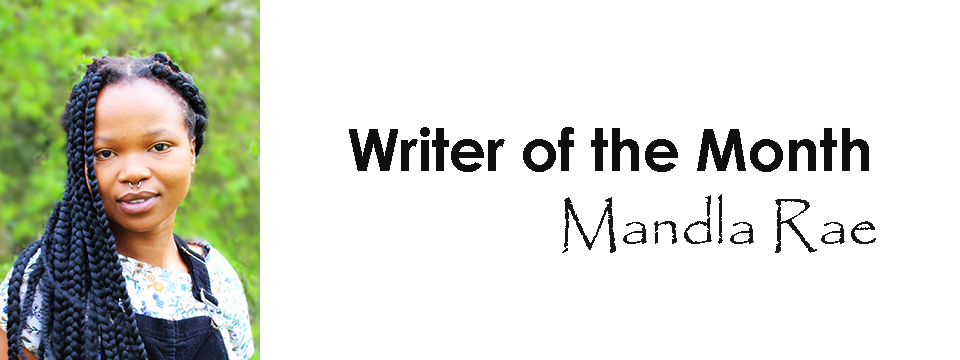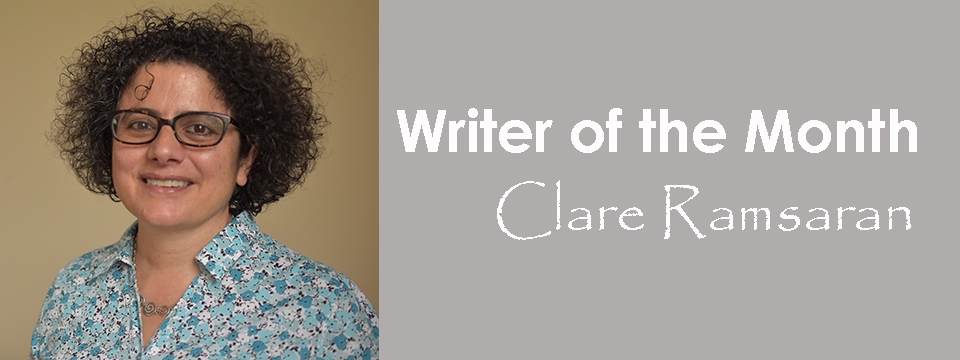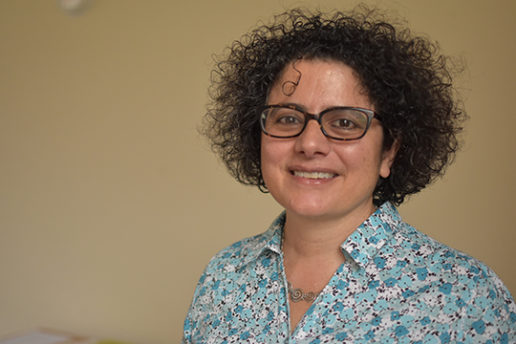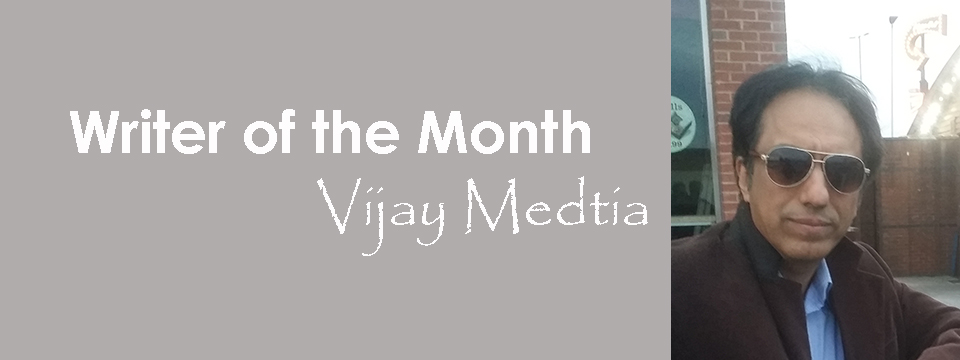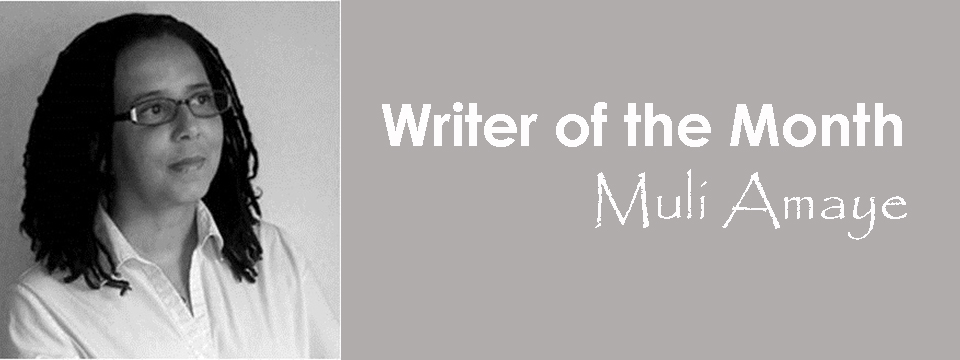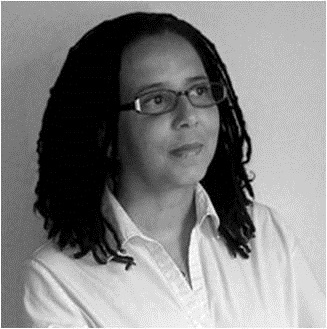Writer of the Month: Kevin Otoo
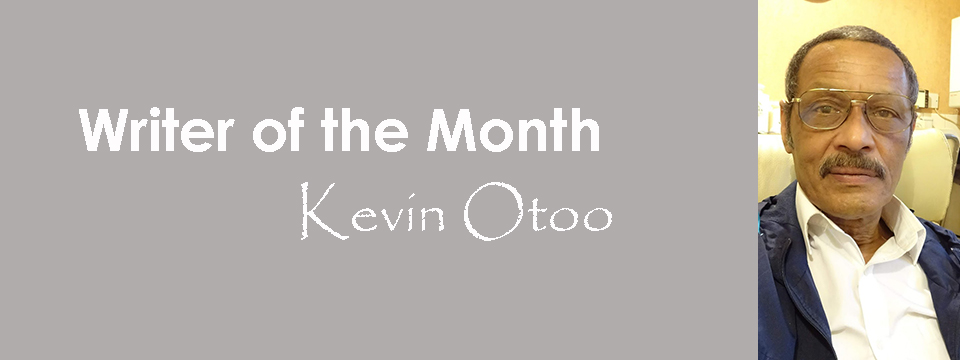
Can you tell me a bit about what you chose to write about and why?
The answer to the first part of the question is… Anything and Everything. And as for ‘why’ I write… I really don’t know, even after several days of thinking about little else! What did occur to me though is that one way of answering the question might be as follows –
ME AN’ SHIRL.
I take the first album
From where it sits in the rack
And I lower the needle
Onto the next to last track
I pretend-tip-my-hat
She pretend-curtseys back
We go around to the sound
Of The Best of Take That
The way the world goes around
Locked in its dance with the sun
The way the world goes around
Yet never seems to move on
We had a friend who’d call ’round
He’d bring a weed and some rum
He mostly liked to expound
On what the world has become
One day a kid knocked him down
He wore a red base-ball cap
He knocked him down to the sound
Of take this and take that!
(He knocked him down to the ground
Outside the door of this flat)
And still the world whirls around
While me an’ Shirl twirls around
The way the cat curls around
Its own warmth on the mat.
(September 2018.)
In essence, probably everything I’ve ever written has just been a variation of what is contained in the above poem and maybe somewhere in there too is the reason ‘why’ I write. I guess one might say that I write about that little bit of the world I know and the people who live and have lived in it with me. About how we sometimes struggle to make sense of it all, how we occasionally hurt one another (intentionally or otherwise): and how eventually we learn to adapt and find some way to move on.
How did you find out about Commonword and why did you start coming to the writing group? Can you remember what it was like?
The first time I heard about Commonword was in 1978 when I attended a writers group that had been set up by a woman called Fran Kershner in the library in Hulme. (If you are reading this Fran, then many thanks). Sometime during the following year (and at Fran’s suggestion) I attended my first Commonword Monday Night meeting in their offices on Bloom St. in the City Centre – and had continued to do so on a regular basis until the end of 1982. Mostly what I remember of those meetings is a wonderful sense of warmth and friendliness, and an informality and togetherness which extended to the time that we would spend in the pub afterwards. Meetings always felt relaxed, comfortable: someone or other would read and then there would be a bit of discussion or comment and then it would be somebody else’s turn. Occasionally a room would be hired in a nearby pub: once it was the Britons Protection for example and another time it was The Millstone. And then of course there was always the satisfaction of seeing one’s work in the group’s quarterly magazine, the ‘Write On’. All in all it was a happy and rewarding time in my life and I remember those days and the people who were there with real fondness.
Can you tell me about Another Moss Side Night? How did it come about? How was it received? How did Yargo’s version come about?
Another Moss Side Night was written in 1982 but is set mostly in and around the year 1970 when I had been spending more or less every night between twelve and six in the morning living in a world identical to the one portrayed in the poem.
All of the characters, the places and the incidents that feature in the poem are, for the most part, real and true, including the petrol-bombing of the Western club, which was not really a club at all but just a rather dingy shebeen on the first floor of the same building as the much more conventional and far more popular ‘Nile’ and ‘Reno’ clubs.
The poem originally appeared in print in issue number 19 of Commonword’s quarterly magazine the ‘Write On’. And then, a couple of years later, it also appeared in the ‘Octopus’, a community based magazine produced locally here in Hulme. And finally, in 1986, it found its way into the first issue of a somewhat short-lived though really well-produced magazine called the ‘Fly’ which was created and distributed by a group operating out of Chorlton.
And that should have been that: but then it re-invented itself… as a song!
It’s probably fair to say that in my younger days I had quite liked to drink a bit… and one night whilst doing just that in the Reno club in Moss Side, I got to talking with a guy who asked me if it would be okay for him to put the poem to music and to perform it with his band, ‘Yargo’. I said ‘Yes, go ahead’, and the following year, after having been to see the band at a couple of local venues (and really liking what I had heard!) the song was released as one of the tracks on their debut album, ‘Bodybeat’. Basically it was just as simple as that… until I approached him for payment. Which is when it got very complicated indeed. But that’s another story altogether!
Another Moss Side Night was interesting in that almost everyone seemed to like it. (Or so it seemed to me at the time). And yet lately I have been wondering about just exactly who ‘everyone’ was back then? I only ever read the poem publicly once and that was to just a handful of Commonword regulars in the Millstone pub, so the only other people who could have liked it were those who had either read it in one of the 3 magazines mentioned earlier or who had been fans of Yargo. My feeling is that almost all of those people would have been white, that the majority of them would have been young and that they would have been from outside of the area, though not exclusively so.
What was it like being “brought up in a white world”? (This is what you said to me when we spoke in October last year). Would you consider yourself an outsider? What was life like for you growing up?
From the age of 9yrs to 20yrs, with the exception of two 6 months long interludes and the time spent in a Family Group home, my life was lived in institutions, so although I say I was brought up in a white world it was not the same white world as my contemporaries were living in.
Yes, I do consider myself an outsider and have done so since the age of thirteen when I was relocated from Manchester to a residential school in the South East of the country. The geographical disconnect felt like the last straw and I refused to adapt. It wasn’t an issue with colour – it was more a case of being older by then and beginning to feel that I’d had enough.
And as for what life was like for me growing up, well that would take a long time to tell. Suffice to say that I didn’t suffer racism, I was not treated unfairly or unkindly (at least not in any way that was apparent to me at the time) and my first heroes were The Rolling Stones and The Who… white pop/rock star rebels!
Nb. I never did become a pop/rock star, I was only ever ‘half’ white and as for being a rebel… it’s probably more accurate to say that I was simply someone with a skewed way of seeing things who found it somewhat difficult to conform.
Have you got anything else you wanted to add?
Just this…
REBIRTH.
And then I had been born again
Only this time it was to a different woman
And it was to some other man
And it was on a different continent
To where that other life began
One where the sun was a disc of silver
In a clear and unending sky
And life was heart-breakingly simple
And the fields bone-breakingly dry
And I had grown beyond the reaping
Beyond the man that the child became
And the threshold of that understanding
Of why we dream we might be born again.
(Kevin Otoo. 2017).

